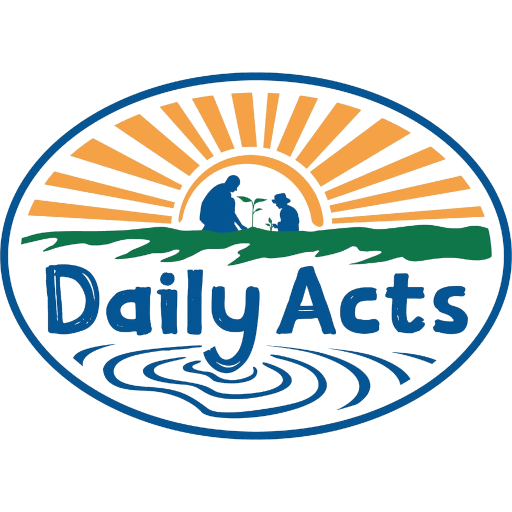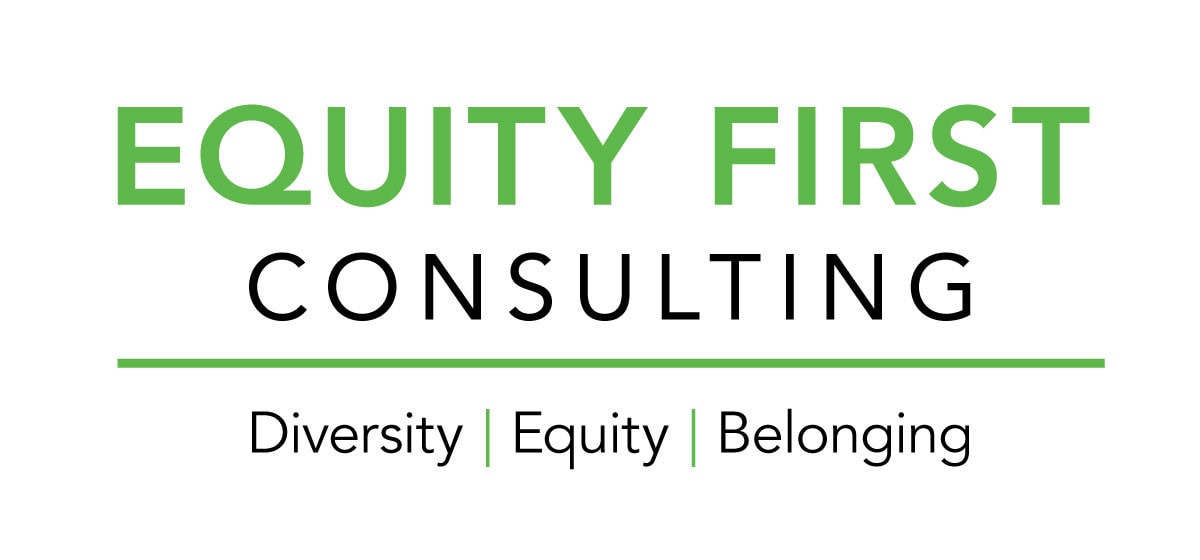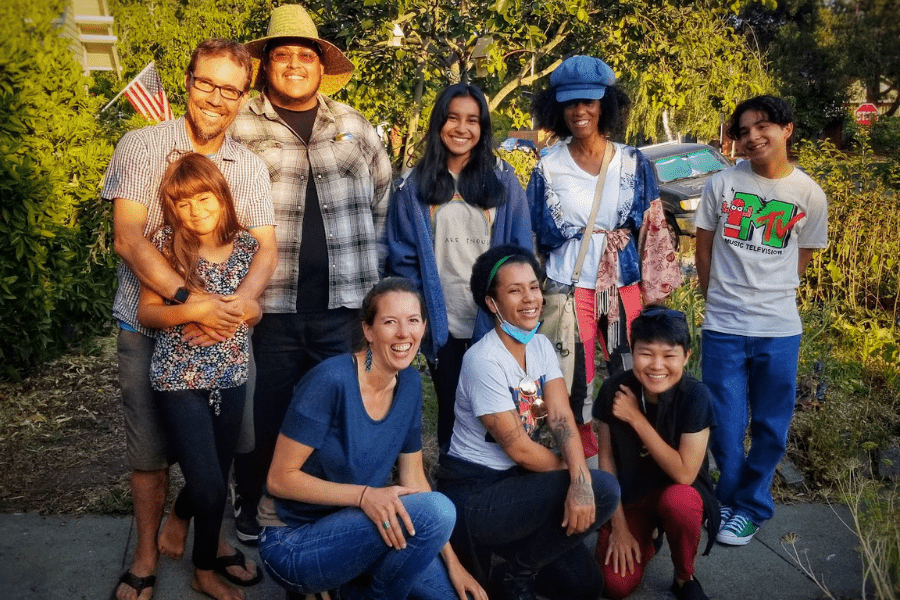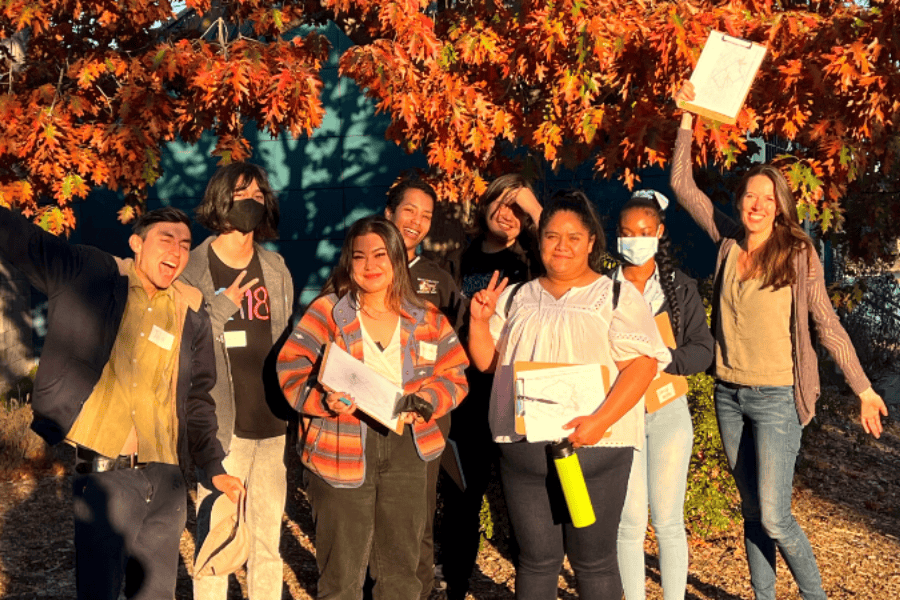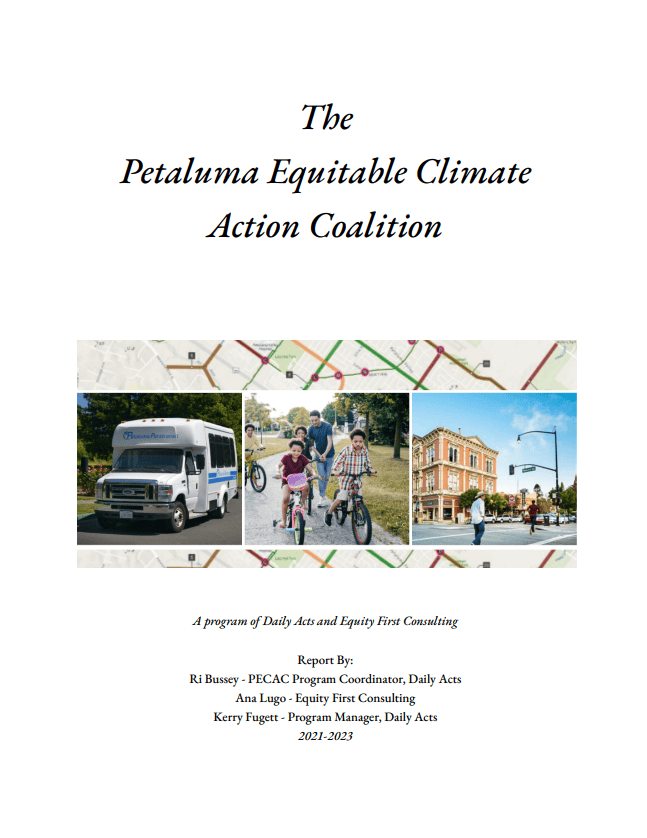
About the Petaluma Equitable Climate Action Coalition (PECAC)
The Petaluma Equitable Climate Action Coalition (PECAC) was a six month pilot program designed and facilitated by Daily Acts and Equity First Consulting from September 2021 through March 2023. It was formed in response to the City of Petaluma’s goal of reaching carbon neutrality by 2030, and aimed to amplify the voices of underrepresented communities in shaping local transportation and climate policies.
During PECAC 1.0, a team of six dedicated Petaluma residents led community input sessions and presented recommendations to city leaders. These recommendations included installing physical barriers between bike and car lanes, increasing access to bike repair shops with Spanish language services, adding bus stops, making public transit more youth-friendly, and securing grants to promote electric bicycle use.
Building on that momentum, PECAC 2.0 launched with a team of four dedicated Petaluma residents as a city-supported program. Their recommendations included ensuring safe walking experiences, making biking safe and convenient, lowering barriers for new public transportation riders, streamlining accessibility to public transportation information, and community engagement best practices.
PECAC’s efforts played a key role in informing major city planning efforts, including updates to Petaluma’s General Plan, Active Transportation Plan, and Climate Action Plan—helping the City of Petaluma prioritize policies, programs and resources to address transportation equitably.
Our Two Incredible Cohorts
PECAC Report
Discover the inspiring journey behind PECAC – from how the program originated to how the cohorts were recruited and selected, the methodology used, and the recommendations from PECAC 2.0 for the future of the City of Petaluma’s transportation. Want to see the original PECAC 1.0 recommendations in action? Watch the video! These powerful recommendations were shared with City of Petaluma Elected Officials, Staff, community leaders, listening session participants, and folks involved in active transportation in town.
Report By: Ri Bussey, Program Coordinator, Daily Acts; Ana Lugo, Equity First Consulting; Kerry Fugett, Program Manager, Daily Acts
PECAC In the News
Gratitude
We hold enormous gratitude to: Our PECAC 1.0 participants, Lisa Lim, Kymberly Bailey, Celeste ChavezHernandez, David Ortega, Luis Chavarin and Ri Bussey; our PECAC 2.0 participants Lynn Gen, Julio Rodriguez, Kaylia Brown, and Evan Cantwell; Program Staff Ri Bussey and Kerry Fugett; Our anti-racism consultant, Ana Lugo from Equity First Consulting. As well as our City staff, Rhianna Frank, Peggy Flynn,Bjorn Griepenberg, and Jared Hall. We are very grateful to the United Way of the Wine Country and Daily Acts for funding PECAC 1.0 as well as the City of Petaluma for funding PECAC 2.0.

